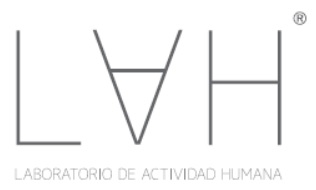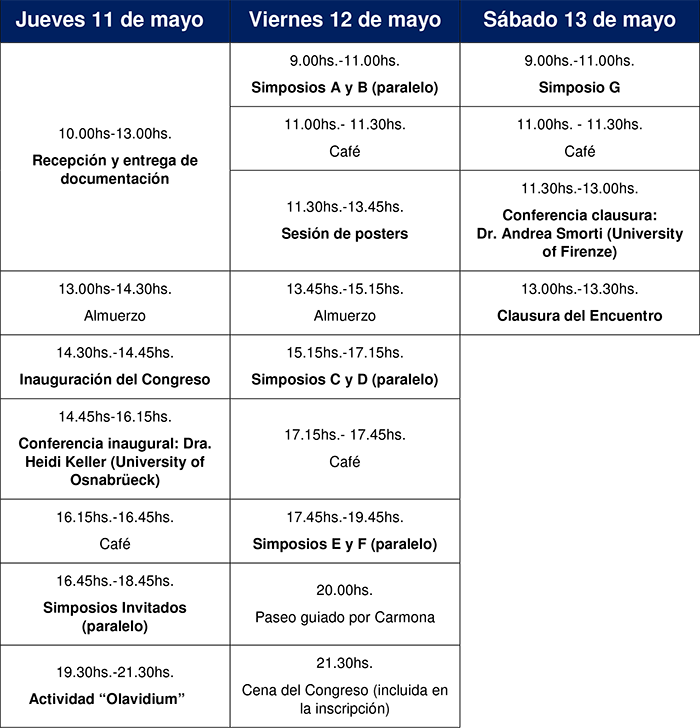ISCAR Congress
Challenges of the self: Re-signifying practices and speeches
Seville, from 11th to 13th May 2017. “Olavide in Carmona”, Carmona, Seville
The International Society for Cultural and Activity Research (ISCAR) was established in 2002 (https://www.iscar.org). During the celebration of its First International Congress, at the University of Seville (Spain) in 2005, the ISCAR Ibérica association was established. The association organized its first meeting in 2011 in Madrid, and the second one in 2014 in Girona. This association is formed by researchers who guide their studies from a sociocultural perspective. Every three years, within the framework of Spain and Portugal, ISCAR Iberica organizes a meeting that aims to summon the maximum number of research groups working in that perspective, to reflect and share guidelines, methodologies and new lines of research. This year the meeting takes place in Andalusia. The event will take place from 11th to 13th May 2017 in the city of Carmona, Seville; as a result of the collaboration of the “Human Activity Laboratory” group (LAH), from the University of Seville, and the “Group of Studies on Culture and Cognition” (GECyC), from the Pablo de Olavide University.
It seems that the so-called cultural homogeneity came to an end in most of the societies many years ago. Migratory movements, the development of mobile technologies, the continuous increase of social networks, information technology and audiovisual media, have opened up a multitude of possibilities for people, allowing (and favoring) the construction of a new(s) global village(s). In a world like this, in which the influence of “others” can appear in multiple forms (clothes, music, words, practices, etc.), the study of the self becomes a fundamental issue not only for societies and cultures , but also, and especially, for people. In the face of these vertiginous changes, and the challenges associated with them, which make borders -of all kinds- diluted (and even, at times, disappear), and distances -some of them, until not long ago, insurmountable – shorten, it becomes necessary to reflect on how people define ourselves and how our self takes meaning from historical and cultural circumstances, as well as the practices, scenarios and activities in which we participate. This reflection has another one associated, no less relevant, that revolves around how people can face the new challenges and identitary challenges, until now unpublished, that all these changes carry with them. Knowing these challenges of the self, and addressing its study, means re-signifying the practices and discourses in which the latter can be threatened, and “being put”, in some way, in situations of vulnerability. This double reflection, to which we allude, will have very relevant implications both on the articulation of social groups and on the coexistence between societies.
Organizing Committee
Manuel Luis de la Mata (Universidad de Sevilla)
Juan Daniel Ramírez (Universidad Pablo de Olavide)
Samuel Arias (Universidad de Sevilla)
Miguel Jesús Bascón (Universidad de Sevilla)
Mercedes Cubero (Universidad de Sevilla)
Alicia Español (Universidad de Sevilla)
Beatriz Macías (Universidad Pablo de Olavide)
María Marco (Universidad Pablo de Olavide)
Virginia Martínez (Universidad Pablo de Olavide)
María del Mar Prados (Universidad de Sevilla)
Francisco Javier Saavedra (Universidad de Sevilla)
Andrés Santamaría (Universidad de Sevilla)
Scientific Comittee
César Coll (Universitat de Barcelona)
Mercedes Cubero (Universidad de Sevilla)
Moisés Esteban (Universitat de Girona)
Pilar Lacasa (Universidad de Alcalá)
José Luis Lalueza (Universitat Autònoma de Barcelona)
Beatriz Macías (Universidad Pablo de Olavide)
María Marco (Universidad Pablo de Olavide)
Virginia Martínez (Universidad Pablo de Olavide)
Manuel de la Mata (Universidad de Sevilla)
Teresa Mauri (Universitat de Barcelona)
David Poveda (Universidad Autónoma de Madrid)
María del Mar Prados (Universidad de Sevilla)
Juan Daniel Ramírez (Universidad Pablo de Olavide)
Cintia Rodríguez (Universidad Autónoma de Madrid)
Alberto Rosa (Universidad Autónoma de Madrid)
Andrés Santamaría (Universidad de Sevilla)
Abbreviated Program (Schedule)
The Congress is organized by plenary lectures, symposiums and poster sessions.
For more information, visit this link.

